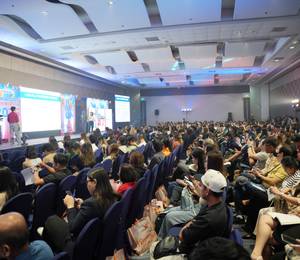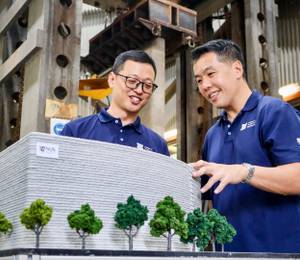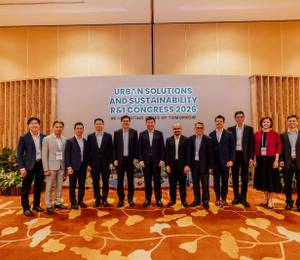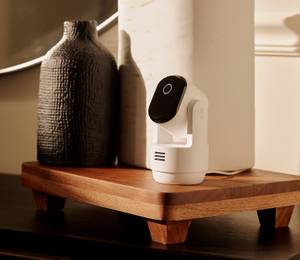London, UK – The Royal Institute of British Architects (RIBA) has published the final set of horizon scans in its recent series, examining trends in technological innovation that will shape society and the built environment over the next decade.
RIBA Horizons 2034: Technological Innovation includes four horizon scans that consider how technological innovation, including AI, will impact the built environment and the practice of architecture. They ask how architects can respond to this global shift and embrace a technologically enabled and empowered future.
Commissioned by RIBA to provide foresight for building design professionals, the scans are written by leading academics and experts.
The four horizon scans are:
- innovation strategy: committing to innovation is the path forward
- digitalisation in design: skill commoditisation, data battles and the re-invention of creativity
- automation in construction: how industrialised construction can redefine the role of architects for the better
- architecture in the age of AI: four signposts to watch
These horizon scans ask how architects can anticipate and take advantage of the opportunities posed by technological innovation, in areas such as design and business.
They consider the ethical implications of the digitisation of the building industry and ask how resources can be shared across the global profession.
They also examine what new demands the automation of construction might place on architects and ask important questions about professional agency in the era of AI.
RIBA Horizons 2034: Technological innovation is part of the RIBA Horizons 2034 series interrogating the global megatrends predicted to shape society, the built environment, and the architectural profession by 2034. Previous scans focused on the environmental challenge, the economics of the built environment, and population change. A final report summarising the series will be published this summer.
RIBA President Muyiwa Oki said: “Architects have successfully adapted to many waves of technological change, but the advent of artificial intelligence poses bigger questions for the profession than ever before. Will AI change architecture as we know it? What are the creative, ethical and technical implications of AI and automation? And how can we harness new technology to ensure the built environment meets the needs of the future? I encourage all building professionals to read these scans to prepare for the challenges and opportunities ahead.”
Editor of RIBA Horizons 2034: Technological Innovation, Professor Phillip Berstein, Associate Dean and Professor Adjunct at the Yale School of Architecture, said: “Unlike earlier technology disruptors like computer-aided design (CAD) or even building information modelling (BIM), artificial intelligence has placed immediate demands on the architectural profession. It requires architects to understand and respond both within and without their practices. The Technological Innovation scans speculate on the future world of practice and set a vision for architecture’s response that must include proactive comprehension, strategic foresight, and a bias toward innovation.”
For more information on the scans, visit: https://www.architecture.com/digital-practice-tools/RIBA-Horizons-2034/Technological-innovation












